- Home
- Jasinda Wilder
There's No Place Like Home Page 8
There's No Place Like Home Read online
Page 8
Captain Kinross checks his pocket watch, and offers no assistance. “He took ill a few months ago. He is retired, now.”
“Took ill?”
“Something to do with his heart.”
“Oh.” Connor stacks bags of wheat and corn. “Good man.”
This is more than he’s spoken all at once since the previous fall, and his voice feels rusty, the use of words an unfamiliar taste in his mouth.
The lighter is full of supplies, sagging low in the water, and even with Elijah helping it usually took the two of them half a day to unload and haul all the supplies up the island to the residence; if Captain Kinross is disinclined to help, it will take Connor the entire day and then some.
Still, he says nothing of this, only moves with slow and methodical and tireless economy, stacking all the goods on the dock and taking inventory as he does so; Captain Kinross has withdrawn a small notebook from his breast pocket and is taking notes of some kind, and Tess has found a seat on a bag of potatoes. She too has a book in hand, but hers is larger, a sketchbook, and she is busily sketching the scene. As he works, Connor takes note of her sketches—she is very good. She draws the growing stack of goods, the house up on the hill, the lighthouse high up on its perch. She draws the lighter, rocking emptily now against the dock. The ship away in the distance, sails reefed, masts and spars thin dark lines against the pale blue sky.
She even draws him. In the sketch, he is turned partially away from her with a barrel of whiskey on his shoulder and a sack of nails in his other hand. She captures in a few quick strokes the line of his jaw and the scruff of his unkempt beard, the breadth of his shoulders and the dark hollows of his deep-set eyes.
She notices his attention, and turns the book so he can see the sketch properly. “It isn’t a very wonderful likeness, of course, only a hastily done sketch.” She shrugs modestly. “I could do a proper portrait, if you like.”
Connor only stares, unsure of a response.
“No time for that, I’m afraid,” Captain Kinross says, not looking up from his writing. “We must be away soon. Time and tide wait for no man.”
“But Papa, we’ve only just arrived,” Tess says. “I should like even a short break from the ship, and besides, I want to see the lighthouse. Could Mr. Yates show me, once the supplies are in?”
“We really must be away, soon, Tess.”
“Then why don’t you help poor Mr. Yates with the supplies? It would be done in half the time, wouldn’t it?”
Captain Kinross’s eyes narrow over the top of his notebook, and then flick from Connor to Tess and back. And then, moving slowly and reluctantly, he pockets his notebook and the stub of pencil, and begins helping Connor.
Together, the work progresses apace, and soon the supplies are stacked on the dock. Connor has been doing this long enough to have a system in place: he always unloads the items from the lighter first, and in so doing takes inventory of the incoming supplies, and compares it against the inventory of what he currently has in stock on the island—this running tally is kept in a small thick ledger wedged in his back pocket, which he hauls out and consults now and again, marking a note on this item or that, making sure nothing has been forgotten. When he is sure all the supplies brought in match his needs, he writes down on a separate sheet of paper the items he will need on the next ship in, and how much.
The first trip up the stairs from dock to residence, Tess follows the men up and makes herself at home on the porch. She takes a seat in a rocking chair and immediately opens her sketchbook and sets to work sketching the new vista—the island beneath them, the dock and the lighter, the stairs, the ship like a toy in the distance.
Several hours and many trips later, the supplies are all in and put away. Connor isn’t winded at all and is barely damp with sweat, but Captain Kinross is huffing and dripping, and it is he who suggests, now the work is done, that a brief respite and refreshments would not go amiss.
And so Connor finds himself clumsily attempting to make sandwiches and coffee. He has made rather a mess of the sandwiches and the coffee has been percolating and bubbling, and it is just then, as he is beginning to feel flustered and overwhelmed at the unfamiliar task of preparing food for more than merely himself, that Tess appears in the doorway.
“Your coffee is burning, I believe,” she remarks.
Connor just grunts—an alternative to the curse he wishes to let loose—and snags the coffee off the top of the wood-burning stove. He burns his fingers, only just managing to not drop the pot, but in so doing knocks the sandwiches to the floor.
Shaking his hand, he snarls a curse, and then blushes with a glance at Tess. “Apologies, ma’am.”
Tess only laughs. “Don’t be silly. I live onboard a ship, surrounded by sailors. There’s nothing you could say that would shock me.” She surveys the mess he’s made. “Would you like some help, Mr. Yates?”
“Ain’t no mister. Just call me Connor,” he grumbles. “Guests aren’t supposed to see to their own refreshments.”
Tess laughs again. “Yes, well, I don’t mind.” She makes quick work of sweeping and binning the mess on the floor, and then sets to remaking the sandwiches. “I am hungry, and this is work I’m rather more suited to than you, it would seem.”
Connor watches as she accomplishes in moments what it took him minutes to do. “Don’t get people round here often,” he says by way of explanation.
“Twice a year, as Father explains it. From what I understand, you’ve only had Captain Elijah to visit twice a year for the last several years.”
Connor manages a noise of affirmation.
“Don’t you get lonely?” Tess asks.
He lifts a shoulder. “Some.”
She arranges the sandwiches onto a plate, but doesn’t move to carry them out to the porch yet. “I should think I would be dreadfully lonely here, all by myself for months on end.”
“Used to it,” he murmurs, rinsing out coffee mugs so long unused that they’re dirty with dust. “Ain’t really much for company anyhow.”
She looks at him with an odd light in her eyes. “I don’t think I’d mind it here at all, so long as I had one other person to talk to.”
He catches something in her voice, some potential for hidden meaning. “Ain’t no place for a lady, Miss Kinross. This place barely counts as livable, except for a solitary fella like myself.”
“I think I’m rather capable of determining for myself what is and is not livable to me.” She smiles at him. “Most would say a ship full of coarse men out on the open sea for months at a time is also no place for a lady, yet such is where I have lived the last ten years of my life.”
“Ain’t got no kin? Nowhere more decent to live?”
She frowns. “I’ve a very distant aunt or cousin or some such, living in Suffolk, or somewhere like that. I’d rather be with Papa. I like the sea, and I like the open places. I feel confined and constricted when we visit cities.”
He wonders about her mother, but doesn’t dare ask. “Last time I was in a city, I damn near stopped breathing ’til I got clear of it. Too many folks and not enough air.” He winces, and rubs the back of his neck. “I shouldn’t curse. Hard habit to break.”
This is more than he’s said all at once since the end of the war.
The strange conversation ends then, when Captain Kinross calls out a query regarding refreshments. By the time the coffee has been drunk and the sandwiches eaten, it is dark. Elijah never cared much about having to row back to the ship in the dark, but Captain Kinross is a different sort of man entirely, and to expect a woman to make such a trip is unthinkable. There is one extra bedroom, which Tess takes, and Captain Kinross takes Connor’s bed; Connor tries unsuccessfully to sleep on a chair in the sitting room. He knew the moment he closed his eyes that he would suffer from the dreams again, and with company in the house didn’t dare risk waking them up with his screams; he abandons all pretense of sleep. Instead, he puts on a pot of coffee, pours himself a mug, and carries it w
ith him up to the lighthouse.
He settles into his usual place, leaning against the railing, watching the moon arc across the sky.
He hears a noise behind him, but dismisses it as the settling of the building, so unused is he to company. Thus, when a hand alights on his shoulders, he is badly startled, cursing viciously as he whirls and steps away, spilling coffee as he draws a knife from a sheath on his belt, his teeth bared.
Tess, candle in one hand, backs away, frightened. “I’m—I’m sorry, I—I didn’t mean to startle you.”
Embarrassed, he turns away. “I’m the one to apologize, Miss Kinross. Told you, I ain’t much used to havin’ folks around.”
She tiptoes cautiously onto the balcony, moving slowly, clinging to the railing with her free hand, peering over the edge nervously. “We’re very high up.”
“Some four hundred feet above the sea, where we’re standing. Thereabouts, leastways. Less directly to the ground, though.”
“Don’t you get frightened? The wind is so strong. I’m afraid it’ll just pluck me up and carry me away.”
Indeed, the wind is very strong. It whips her hair behind her in a straight black line, and plasters her nightdress against her body. Connor notices this, tries not to stare and is only partially successful.
“Sometimes, I think I could just fly away,” Connor hears himself say. “Just…let the wind take me wherever it is the wind goes.”
“If I wasn’t so scared of falling, I’d think that was a lovely sentiment indeed.” A rough gust of flattering wind pushes at them, and Tess shrieks and shrinks against Connor’s side. “Oh, how frightening!”
Connor lets her weight lean against him, keeping a strong grip on the railing with one hand, nursing his coffee in the other. “Forget I said that. The wind ain’t gonna hurt you none. Just hold on tight and you’ll be fine.”
She holds on tight, all right, but to him rather than the railing. “I’d rather you held me, Connor.” The words are daring, put out there in the open like that, so boldly.
“You don’t know a durn thing about me, Miss Kinross. I ain’t fit company for a lady like yourself.”
“I’m the daughter of a sailor—I’m no lady. I’ve spent more time on the deck of a ship than among proper society, and I can read the sea more easily than I can the newspaper.” She pulls away, then, straightening her spine and turning to face the sea. “I know myself, Mr. Yates. I know what I want.”
“You’ve been here not even a day. Come winter, the storms have real teeth. And there wouldn’t be anyone around, not anyone at all ’cept me. Not for months and months at a time. No way to change your mind once you see how things is.”
“I’ve weathered hurricanes and typhoons, helped fight off brigands, seen men hung, keelhauled, and thrown overboard. We’ve been becalmed several times, nearly sunk twice, and I once ordered a man flogged for rape when my father was ashore conducting business.” She turns to face Connor, then. “I know myself, Mr. Yates.”
Connor has no idea how to respond to this, and so he doesn’t. Silence breathes between them, and Tess seems content to let the silence be, rather than needing to fill it with chatter, as he’d have expected.
After a while, she turns to Connor again. “Will you walk me back down?”
“O’course.”
The walk down the stairs is long, and she seems to push ever closer against his side as they descend, and her hand continually brushes against his. This, for some reason, makes his heart pound worse than the first battle he fought, in the moments before his line rushed the enemy.
Tess pauses at the bottom of the stair, plucking at Connor’s sleeve. “Wait a moment, please.”
He stops, turns back to face her, the door behind him. “Yes, Miss Kinross?”
She stares up at him. “Call me Tess.”
“All right.”
“I like you, Connor.”
He just blinks at her. “Not rightly sure why, ma’am.” He rubs the back of his neck. “I ain’t good company.”
“You seem like perfectly agreeable company to me.”
“The war, you see. It…did things to me, here and here.” He taps his temple, and then his heart. “You saw what happened when you startled me.”
“Not all of the men on my father’s boat are chosen for their skill as sailors, Connor.” There’s a subtext to her words, which Connor reads easily. “I’m not afraid of you.”
“We just met, Tess.”
“I know. But I know myself. And I know what I want.”
“What is it you want, then?”
“A quiet life, away from the crowds and the cities. A home near the sea. Solitude, and a good man to keep me company. A child, perhaps, someday.”
Connor’s collar suddenly feels too tight, and his chest wouldn’t expand all the way. “I—Tess, I—”
She just smiles at him. “Think about it, perhaps?” Her hair drifts across her face, hiding a smirk and a burst of soft laughter. “You’ll have several months in which to consider the idea, after all.”
She’s passed him, then, out the door and tiptoeing across the stone flags, her candle guttering in the wind. He watches her lithe, lush form, an uneasy, unfamiliar rush of something sharp and hot and tense filling him at the sight of her body, highlighted by the way the wind blows her nightdress against her curves. She stops at the back door, and the wind shifts, pushing the nightdress against her breasts and between her thighs, and his mouth goes dry and he feels dizzy and the sharp hot tense feeling intensifies, until he recognizes it as desire and lust and something deeper, something more.
He has a small cot up at the top of the lighthouse, in case a storm blows up and he has to doze by the light, to keep it lit the night through. Here, Connor sleeps, fitfully. He dreams odd dreams, full of desires he thought he’d forgotten long ago, in his quest for solitude.
Next morning, she is awake before he is and bustling about the kitchen, preparing a more hearty breakfast than any he’d had even before he joined the army. She smiles at him at odd moments, brightening a face already so beautiful it makes Connor’s heart ache.
Her father notices, Connor is certain.
When it is time for Captain Kinross and his daughter to return to the ship, Connor walks them down. Captain Kinross goes ahead a few steps, and Tess walks in stride with Connor.
“I had hoped you would take my hand yesterday night, as we descended the stair,” she murmurs to him, as they walk together. “Or that you would have kissed me, there at the landing.”
“I don’t know if I could be so bold,” Connor says. “You’re so beautiful, I’d think I was…taking airs above my station, or somethin’ of the like.”
“Don’t be ridiculous,” Tess says. “I don’t think THAT for stations, or airs, or any of that nonsense.” On the emphasized word, she snaps her fingers. “But I do thank you for your compliment.”
Connor walks a few paces more in silence, considering his words carefully, as he always does. “I’m not a clever man, nor an ambitious one, Tess. This is what I’ve chosen for my lot in life. I don’t know that I’d be good company for a woman, nor a child. If you’re having me on, then leave off the game. And if you’re serious, then you as well have many months to consider if this is really the life you’d like.”
She seems to drag words out of him, great floods of words he didn’t know he possessed.
Tess just smiles at him, and presses something into his palm, discreetly. “I am not a woman to play games, Connor, be assured of that. And furthermore, I neither need nor want cleverness nor ambition in a man. Only truth, protection, and love. And, perhaps…passion.” Here, she gazes up at him, and her eyes are full of innuendo he doesn’t miss, which makes his heart pound and his chest feel constricted. “Do you think you could possess those qualities, Mr. Yates?”
“I think—I think I could learn, if a body was patient in the teaching.”
They are interrupted, then, by a call from Captain Kinross. “Tess, darling. We must go.�
� To Connor, then. “Mr. Yates. A word.”
The men pace away from the dock, out of earshot of Tess, who sits in the lighter. “This is no place for a woman, Mr. Yates, and certainly not my daughter. Nothing said against you, mind, but—”
“I’ve expressed much the same to Tess myself, Captain. You’ve a headstrong daughter on your hands, sir.”
Captain Kinross laughs good-naturedly. “Indeed I do, Mr. Yates. Indeed I do.” He claps the younger man on the shoulder. “Well, we’ll be off, now. And if she’s still interested when we come back for our fall visit, well…I’m not sure I could stop her if I wanted to, and by all accounts, you’re a good man.”
“She’s a rarely fine woman, Captain. I wouldn’t ask her to choose this life…but if she did? Well, sir, I’d consider it a greater honor than a man like me deserves.”
Connor watches the ship depart, standing at the rail of his lighthouse. He can’t see nearly so far, but his imagination provides for him a vision of Tess, standing at the stern, wind tossing her hair sideways and her dress against her thigh; perhaps, to her, he is a speck near the top of the white spire. He wonders if she will be back.
He hopes, for his sake, that she will be; and for hers, that she won’t.
As she’d said, Connor has all the months of spring and summer to wonder. He thinks of the moments spent with her at the top of the lighthouse, and the descent down the stairs, her hand brushing his, and the words they exchanged at the landing. He thinks of the things she’d said on the way down to the dock, that last day, and the way she’d looked up at him. As if a creature so lovely and elegant and wonderful and angelic could look at a man like him and see him with anything like the desire he feels for her.
As such things go, he plays in his mind the few moments they’d shared together over and over again, until each individual second with her is imprinted on his mind like a tintype image. He imagines the things she might say if she returns, and what he would say. Sometimes he chastises himself as a fool, wasting his time on romantic notions which could never see fruition, and sometimes he thinks perhaps she might arrive on the next ship, and he would be there on the dock waiting as the lighter drifted slowly from ship to shore, and she would alight from the vessel and she would be in his arms, and her eyes, so like the color of the Caribbean sea at high bright noon, would fix on his and neither would have to say anything—they would just know.

 Badd Ass
Badd Ass Alpha
Alpha After Forever
After Forever Harris
Harris Riding the Heir
Riding the Heir Falling Away
Falling Away Badd Mojo
Badd Mojo Big Badd Wolf
Big Badd Wolf Falling Under
Falling Under Good Girl Gone Badd
Good Girl Gone Badd Stripped
Stripped Badd Luck
Badd Luck Exposed
Exposed Big Girls Do It Better
Big Girls Do It Better Beta
Beta Falling into You
Falling into You Omega
Omega La Vita Sexy
La Vita Sexy Thresh
Thresh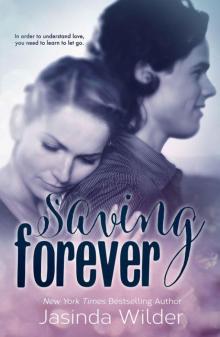 Saving Forever
Saving Forever Big Girls Do It Wetter
Big Girls Do It Wetter Rock Stars Do It Dirty
Rock Stars Do It Dirty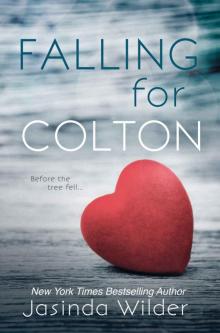 Falling for Colton
Falling for Colton Big Girls Do It on Christmas
Big Girls Do It on Christmas Badd Boy
Badd Boy Falling into Us
Falling into Us Trashed
Trashed Wounded
Wounded Badd Motherf*cker
Badd Motherf*cker Unbroken
Unbroken Badd to the Bone
Badd to the Bone Rock Stars Do It Harder
Rock Stars Do It Harder Big Girls Do It Pregnant
Big Girls Do It Pregnant Yours
Yours The Mile High Club
The Mile High Club Madame X
Madame X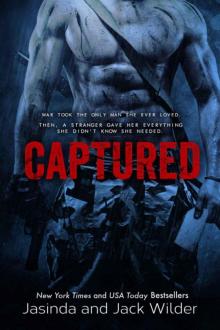 Captured
Captured Unbound
Unbound A Real Goode Time
A Real Goode Time A Wild Ride
A Wild Ride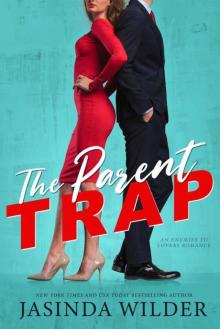 The Parent Trap
The Parent Trap Forever & Always
Forever & Always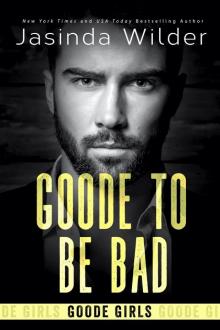 Goode To Be Bad
Goode To Be Bad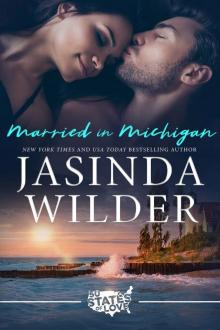 Married in Michigan
Married in Michigan Badd Daddy (The Badd Brothers Book 12)
Badd Daddy (The Badd Brothers Book 12) Nailed
Nailed Goode Vibrations
Goode Vibrations Big Girls Do It on Top
Big Girls Do It on Top Not So Goode
Not So Goode Pregnant in Pennyslvania
Pregnant in Pennyslvania Rock Stars Do It Forever
Rock Stars Do It Forever Cowboy in Colorado (Fifty States of Love)
Cowboy in Colorado (Fifty States of Love) Lear: Alpha One Security: Book 5
Lear: Alpha One Security: Book 5 A Sexy Journey
A Sexy Journey For A Goode Time Call...
For A Goode Time Call... The Naughty Boxset
The Naughty Boxset Lear
Lear Sexy Surrender
Sexy Surrender Pregnant in Pennsylvania
Pregnant in Pennsylvania Autumn Rolls a Seven (Billionaire Baby Club Book 2)
Autumn Rolls a Seven (Billionaire Baby Club Book 2) Laurel's Bright Idea (Billionaire Baby Club Book 3)
Laurel's Bright Idea (Billionaire Baby Club Book 3)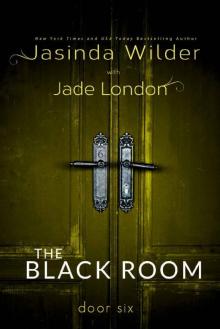 The Black Room: Door Six
The Black Room: Door Six The Long Way Home
The Long Way Home Jack and Djinn
Jack and Djinn The Nice Boxset
The Nice Boxset The Black Room: The Deleted Door
The Black Room: The Deleted Door Wish Upon A Star
Wish Upon A Star The Black Room: Door Eight
The Black Room: Door Eight Drilled
Drilled Big Girls Do It Wilder
Big Girls Do It Wilder Djinn and Tonic
Djinn and Tonic Biker Billionaire #2: The Mile High Club
Biker Billionaire #2: The Mile High Club Badd Ass (Badd Brothers Book 2)
Badd Ass (Badd Brothers Book 2)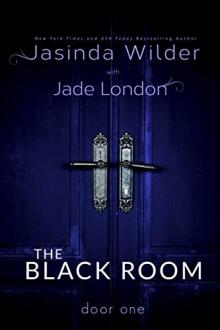 The Black Room: Door One
The Black Room: Door One Hammered
Hammered The Black Room: Door Two
The Black Room: Door Two Delilah's Diary #1: A Sexy Journey
Delilah's Diary #1: A Sexy Journey Delilah's Diary #2: La Vita Sexy
Delilah's Diary #2: La Vita Sexy Badd Medicine
Badd Medicine Caught in the Surf
Caught in the Surf Puck: Alpha One Security Book 4
Puck: Alpha One Security Book 4 The Preacher's Son: Unleashed
The Preacher's Son: Unleashed Biker Billionaire Boxed Set
Biker Billionaire Boxed Set Forever & Always: The Ever Trilogy (Book 1)
Forever & Always: The Ever Trilogy (Book 1) Exiled (A Madame X Novel)
Exiled (A Madame X Novel) Big Love Abroad (Big Girls Do It Book 11)
Big Love Abroad (Big Girls Do It Book 11) Badd Kitty
Badd Kitty Yours: A Standalone Contemporary Romance
Yours: A Standalone Contemporary Romance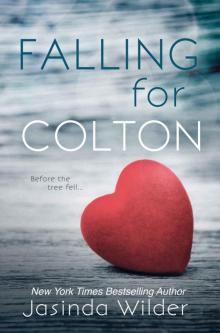 Falling for Colton (Falling #5)
Falling for Colton (Falling #5) The Preacher's Son #2: Unleashed
The Preacher's Son #2: Unleashed There's No Place Like Home (The One Series Book 3)
There's No Place Like Home (The One Series Book 3) Trashed (Stripped #2)
Trashed (Stripped #2) Thresh: Alpha One Security: Book 2
Thresh: Alpha One Security: Book 2 Biker Billionaire #3: Riding the Heir
Biker Billionaire #3: Riding the Heir Duke: Alpha One Security: Book 3
Duke: Alpha One Security: Book 3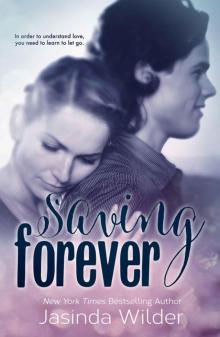 Saving Forever (The Ever Trilogy: Book 3)
Saving Forever (The Ever Trilogy: Book 3) The Preacher's Son #1: Unbound
The Preacher's Son #1: Unbound Badd Business
Badd Business Big Girls Do It Boxed Set
Big Girls Do It Boxed Set The Preacher's Son #3: Unbroken (Erotic Romance)
The Preacher's Son #3: Unbroken (Erotic Romance) The Black Room: Door Four
The Black Room: Door Four There's No Place Like Home
There's No Place Like Home